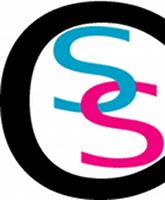University of London
In this presentation, Dylan Wiliam will outline the research evidence that shows why we need to raise achievement in mathematics and science, why investing in teachers is the answer, and why supporting teachers to make greater use of evidence about student achievement to adjust their instruction should be the focus of that investment. The presentation will also show that in order to make that investment effective, it will be necessary to adopt different models of teacher professional development than have been common in the past, namely school- and college-based teacher-led learning communities.
After a first degree in mathematics and physics, and one year teaching in a private school, Dr. Wiliam taught in inner-city schools for seven years, during which time he earned further degrees in mathematics and mathematics education. In 1984 he joined Chelsea College, University of London, which later became part of King's College London. During this time he worked on developing innovative assessment schemes in mathematics before taking over the leadership of the mathematics teacher education program at King's. Between 1989 and 1991 he was the Academic Coordinator of the Consortium for Assessment and Testing in Schools, which developed a variety of statutory and non-statutory assessments for the national curriculum of England and Wales. After his return to King's, he completed his PhD, addressing some of the technical issues thrown up by the adoption of a system of age-independent criterion-referenced levels of attainment in the national curriculum of England and Wales. From 1996 to 2001 he was the Dean and Head of the School of Education at King's College London, and from 2001 to 2003, he served as Assistant Principal of the College. In 2003 he moved to the USA, as Senior Research Director of the Learning and Teaching Research Center at the Educational Testing Service in Princeton, NJ.
His recent work has focused on the use of assessment to support learning (sometimes called formative assessment). He was the co-author, with Paul Black of a major review of the research evidence on formative assessment published in 1998 and has subsequently worked with many groups of teachers, in both the UK and the USA, on developing formative assessment practices.
